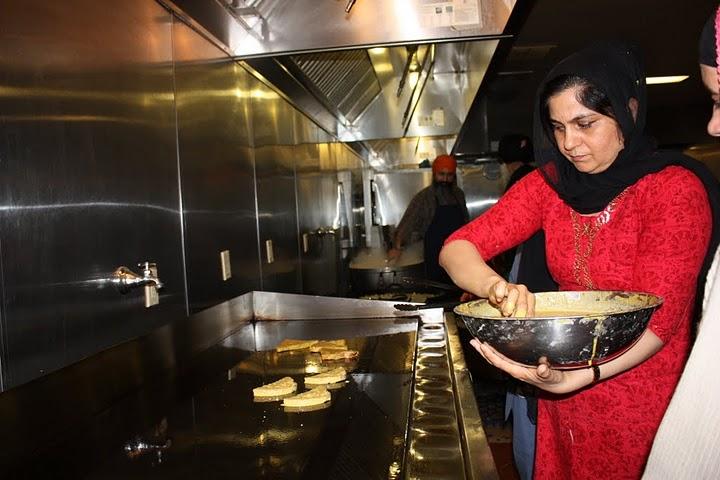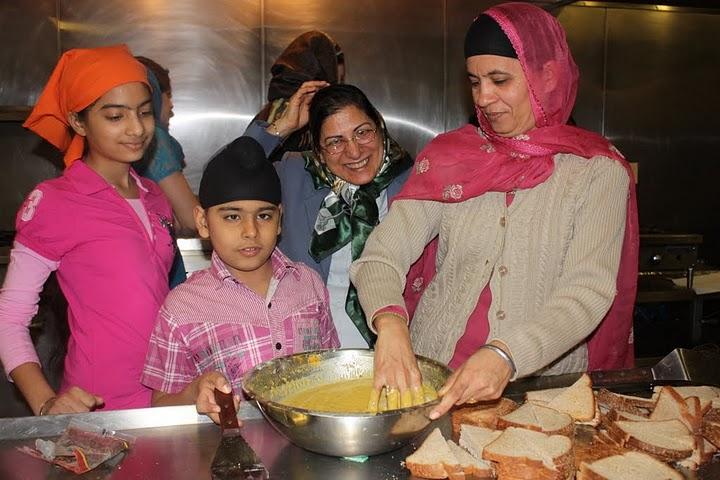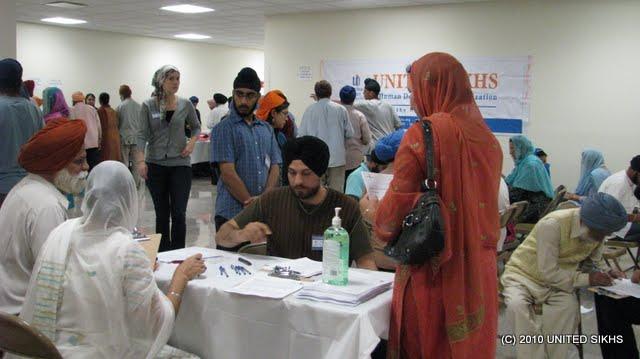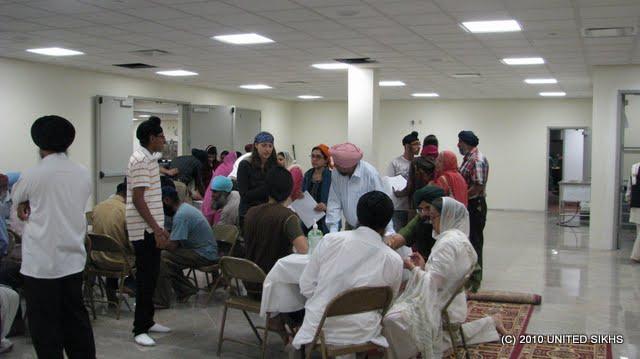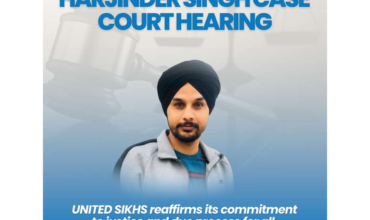Highlights:
- American Sikh community has increased risk for developing Type 2 diabetes: Ongoing study of New York Sikh population by NY University-PRC and UNITED SIKHS.
- UNITED SIKHS offers diabetes screening and prevention classes under Project RICE – Reaching Immigrants through Community Empowerment, a community driven initiative to promote diabetes prevention.
- Visit www.unitedsikhs.org/educare to learn how you can participate in our diabetes prevention efforts.
- For information about Diabetes in Panjabi, please click here.
- Find out your risk of diabetes by taking this test.
- Your support and trust in our work and projects worldwide is highly appreciated!
New York, USA: UNITED SIKHS urges the Sikh community globally to mark today, Diabetes Alert Day as a “wake-up call” and take the diabetes screening test to find out if they are at risk of developing type 2 diabetes. UNITED SIKHS in collaboration with New York University School of Medicine Health Promotion and Prevention Research Center (NYU-PRC) offers year-round diabetes screening and awareness classes at its Educare Center in Richmond Hill, New York. We urge the Sikh community globally to participate in their local diabetes screening programs because preliminary results from an ongoing collaborative study by UNITED SIKHS and NYU indicates that Asian Americans, including Sikh Americans, are at increased risk of developing diabetes. As Sikhs have a similar lifestyle and diet globally, it makes good sense for Sikhs to be alert about their risk for diabetes wherever they are.
Held on the fourth Tuesday of March each year, Diabetes Alert Day serves as a day to raise awareness about diabetes. One in three Asian Americans are at risk for diabetes. Among Asian Americans, Asian Indians have a greater risk of developing the disease. If the current trends of lifestyle continue, the Centers for Disease Control (CDC) predicts that the rate of diabetes in United States may double or triple by 2050. In other words, by 2050, a third of American population will be affected by this disease.
To promote healthy living, UNITED SIKHS has multiple ongoing community projects that increase awareness and education of chronic disease risk. One such project, Project RICE (Reaching Immigrants through Community Empowerment) is a five-year community-driven initiative to promote diabetes prevention among South Asian American immigrants in New York City using a community health worker (CHW) model approach. This project is being conducted in collaboration with New York University School of Medicine Health Promotion and Prevention Research Center (NYU-PRC) and is supported by the Centers for Disease Control and Prevention (CDC).
Study of the Sikh population conducted as part of Project RICE confirmed that there is increased risk of developing chronic disease, notably high blood sugar levels, high cholesterol levels and high blood pressure levels. Over 150 participants, in this study, have been screened for blood sugar, blood pressure and cholesterol levels, in addition to their Body Mass Index (BMI). Preliminary results indicate an increased risk for developing Type 2 diabetes. The study is still ongoing and will add much needed information on risk of diabetes and its prevalence in the South Asian community.
Data collected in this study on the general health of the Sikh population in Richmond Hill, NY has revealed that:
- According to the Asian BMI standard measurements, 40% of Sikhs surveyed were overweight and approximately 44% were obese.
- 27% of Sikhs surveyed had been diagnosed by their doctor as diabetic. Approximately 4% of Sikhs had fasting blood glucose or sugar levels that were not normal (140 mg/dL or greater), indicating either prediabetes or diabetes.
- 16% of Sikhs had high fasting cholesterol levels (240 mg/dL or greater), and 24% of Sikhs had borderline high cholesterol levels (between 200 and 239 mg/dL). 54% of the respondents who underwent screening for cholesterol had been told by a health professional that they have high cholesterol.
- 41% of the respondents who were screened for blood pressure had been told by a health professional that they have high blood pressure. Of the Sikhs surveyed, 38% had high blood pressure (hypertension)
You may be at risk for developing Type 2 Diabetes!
What can you do now to lower your risk of diabetes and other heart disease?
Join Us: We are currently offering diabetes education classes at no charge. In this class, you will, as a community, learn about how to prevent chronic diseases, such as diabetes (high blood sugar) and hypertension (increased blood pressure) and live a healthy and active life. To enroll, email us at ceed-usa@unitedsikhs.org.
Know Diabetes and its Risk Factors: High BMI (increased body fat) is a risk factor for developing Type 2 diabetes, but did you know that Asian Americans are at an increased risk at a lower BMI than others?
Learn about things that put you at risk, and address those that you can modify, such as having a healthy and active lifestyle. Find out your risk of diabetes by taking this test.
For information on Diabetes in Panjabi, please click here.
Watch What You Eat: Eating a healthy diet in moderate proportions goes a long way in weight management, and a healthy weight significantly lowers your risk of developing chronic diseases. Make sure you eat a variety of healthy foods, especially fruits and vegetables. The US Department of Agriculture recently introduced the plate method of food portions. You can find more information here.
Get Active: Reevaluate your day and set time aside for exercise. The CDC recommends 150 minutes of moderate exercise a week (e.g. brisk walking) and muscle strengthening exercise a couple of days a week. Start by taking 10 minute walks through the neighborhood!
Here is how you can get started.
For more information and resources on Project RICE and other health and education initiatives by UNITED SIKHS, please visit us at: www.unitedsikhs.org/educare or contact us at ceed-usa@unitedsikhs.org.
Issued By:
Dr. Seema Kaur
Director,Community Education & Empowerment Directorate (CEED)
Tel: (646) 315-3909
Contact us | Follow us on Facebook and Twitter
unitedsikhs-canada@unitedsikhs.org



